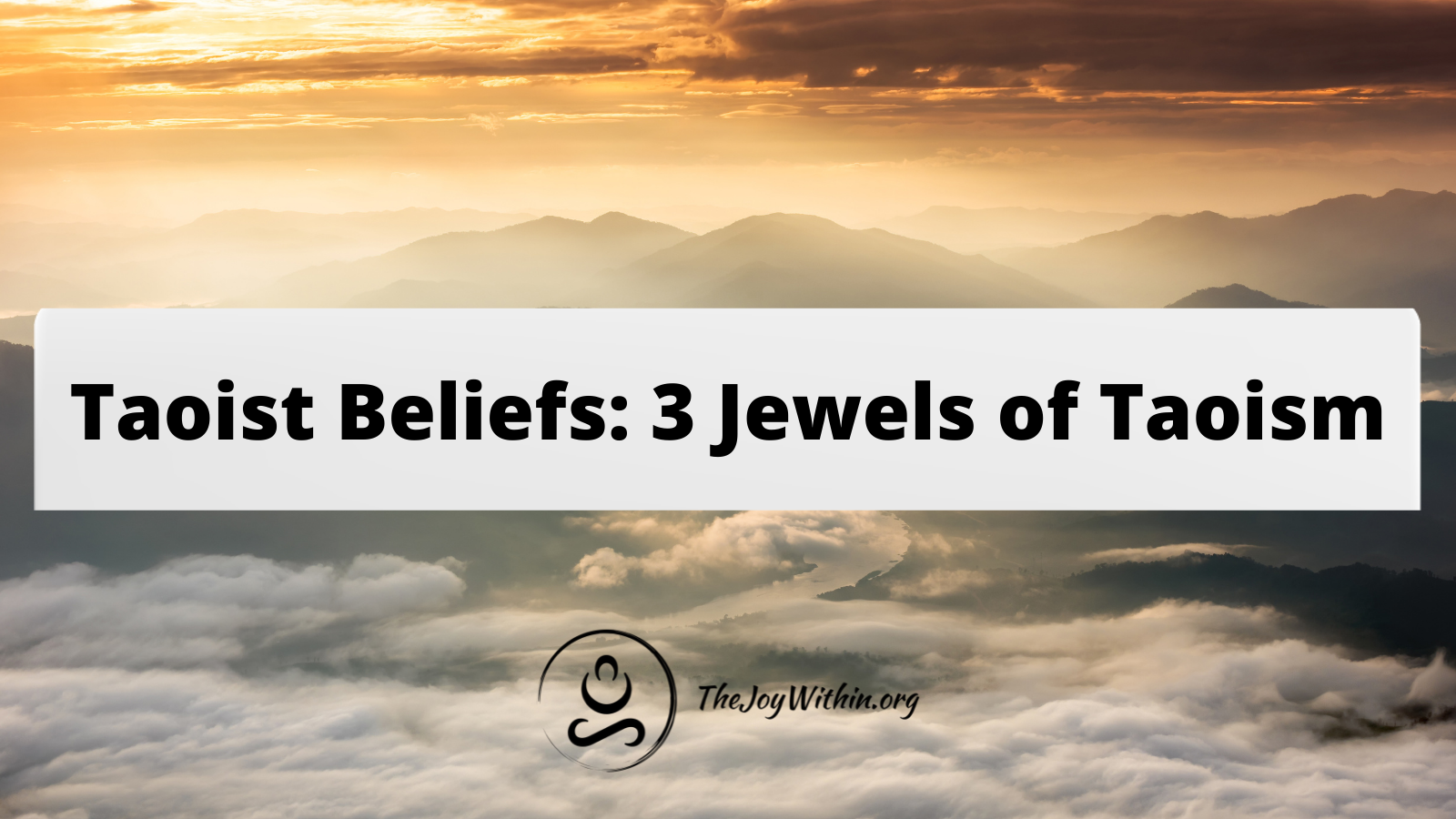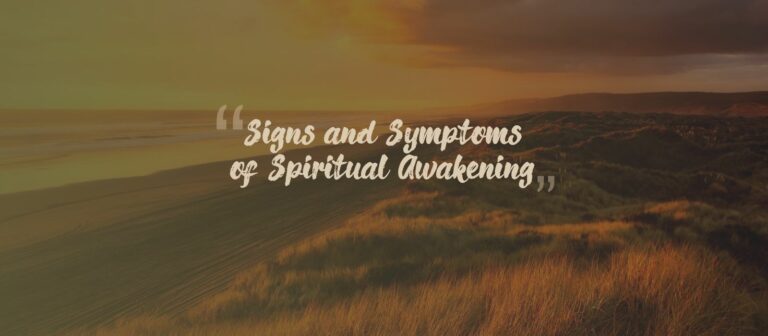“Simplicity, patience, compassion. These three are your greatest treasures. Simple in actions and thoughts, you return to the source of being. Patient with both friends and enemies, you accord with the way things are. Compassionate toward yourself, you reconcile all beings in the world.”
Lao Tzu, Tao te Ching
Rooted in ancient China, Taoism is a philosophical and spiritually traditional way of thinking about life.
While Taoism emphasizes the importance of living in harmony with Tao, it does not place much of a focus on trying to explain what Tao is.
Instead, Taoists focus on genuineness, longevity, and health by living a simple and balanced life in harmony with nature. It promotes achieving harmony or union with nature. the pursuit of spiritual immortality.
There are a few core beliefs that Taoism follows.
Referred to as the three treasures of Taoism (also known as the three jewels of Taoism); they are:
- Compassion,
- Moderation, and
- Humility.
With this blog, we’ve created a brief synopsis of those jewels and what they mean to Taoists.
Related Post: How To Live a Spiritual Life: 10 Practices for Daily Growth
The Three Treasures of Taoism: The Most Important Pillars of Virtue
The core teachings of Taoism are often associated with the Tao, which means “the Way” or the fundamental principle that underlies and unites the universe. Before we look at the three jewels of Taoism, let’s first explore a few of the core principles of this philosophy.
Core Pillars of Taoist Belief
- The Tao (The Way): At the heart of Taoism is the concept of the Tao, often translated as “The Way.” It is the fundamental, unnameable principle that underlies and unites the universe. The Tao is the source of all existence and the path to harmony and balance.
- Wu Wei (Non-Action or Effortless Action): Wu Wei is the principle of non-action or effortless action. It suggests aligning oneself with the natural flow of the Tao, allowing things to unfold organically without unnecessary interference. It does not imply complete inactivity but emphasizes acting in accordance with the natural order.
- Yin and Yang: This concept represents the dual nature of existence and the interdependence of opposites. Yin and Yang symbolize the dynamic balance between complementary forces such as light and dark, hot and cold, and represent the cyclical nature of change.
- Ziran (Naturalness): Ziran is the quality of being natural or spontaneous. Taoism encourages individuals to embrace their natural state and live in harmony with the inherent patterns of the Tao, avoiding unnecessary complexity or artificiality.
- Pu (Simplicity): Pu refers to simplicity or uncarved wood. It suggests embracing a simple and uncluttered way of life, free from unnecessary desires and complications. Living with simplicity allows individuals to connect more closely with the essence of the Tao.
- The Three Treasures (San Bao): The Three Treasures are Jing (essence), Qi (vital energy), and Shen (spirit). These treasures represent the foundational elements that practitioners seek to cultivate for physical, mental, and spiritual well-being.
- Te (Virtue): Te is the concept of virtue or moral integrity. Taoism encourages individuals to cultivate virtuous qualities such as compassion, humility, and kindness, aligning one’s behavior with the natural order.
Taoism is diverse, and different branches or schools may interpret and emphasize these principles in various ways. The core teachings provide a framework for individuals to seek balance, harmony, and a deeper understanding of the nature of existence.
Now, let’s turn to the three jewels.
3 Jewels of Taoism
The three jewels of Taoism are primary virtues that we can practice and incorporate into our daily lives. The more way can incorporate these virtues in our consistent actions, the more we can walk the path of the Tao.
Related Post: Try These 81 Affirmations from The Tao Te Ching.
Compassion

Compassion is one of the most prominent beliefs in regards to living in harmony with Tao.
In Taoism, compassion is about empathy and perceiving things for what they are. Empathy for others, yes, but mainly, empathy for yourself.
When things get tough or complicated, compassion allows us to see things without blurred lenses. It allows us to take a step back when we are feeling overwhelmed and consider our perspective.
Compassion in Taoism aligns with the broader concept of virtue or Te in Taoist philosophy. The Tao Te Ching emphasizes the importance of compassion and benevolence in several passages.
Here are a few key points:
- Compassion as a Virtue: Taoism teaches that cultivating virtues, including compassion, is essential for living in harmony with the Tao. Compassion is seen as a natural expression of one’s alignment with the Tao, reflecting an understanding of the interconnectedness of all things.
- Non-contention and Non-aggression: Taoism promotes a non-contentious and non-aggressive approach to life. Practitioners are encouraged to avoid unnecessary conflict and violence. Compassion plays a role in resolving conflicts peacefully and fostering understanding.
- Wu Wei and Compassionate Action: The principle of Wu Wei, or non-action, is central to Taoist philosophy. It doesn’t imply inactivity but rather emphasizes acting in harmony with the natural flow of things. Compassionate action arises spontaneously from a state of Wu Wei, where one responds to situations with kindness and understanding without force or coercion.
- Kindness and Benevolence: Taoism encourages individuals to cultivate kindness and benevolence in their interactions with others. Being considerate, understanding, and treating others with kindness is seen as an expression of the Tao in daily life.
- Harmony with Others: Compassion in Taoism extends beyond individual actions to the broader concept of harmony with others and the world. It involves recognizing the inherent value of all beings and living in a way that promotes balance and well-being for oneself and others.
It’s important to note that Taoism’s approach to compassion is often woven into the broader tapestry of its teachings, emphasizing the natural and spontaneous expression of virtues rather than rigid moral codes.
Compassion, in the Taoist context, is a way of being that arises from an intuitive understanding of the interconnectedness of all life and the desire to live in accordance with the Tao.
“Simplicity, patience, compassion. These three are your greatest treasures. Simple in actions and thoughts, you return to the source of being. Patient with both friends and enemies, you accord with the way things are. Compassionate toward yourself, you reconcile all beings in the world.”
Lao Tzu, Tao Te Ching
Moderation

According to Taoism, moderation is a key part of personal development and there is nothing in life that cannot be moderated.
While it might feel like pushing yourself beyond your limits is the only way to achieve your pals, moderation is the real key to freedom.
This is because when one better knows their limits, they will be able to find the most comfortable space for them to alter their behavior or achieve their goals. It will also allow them to take a step back from their work and see when they’ve done too much, or not enough.
Moderation and frugality are important concepts in Taoist philosophy because they reflect the principles of balance, simplicity, and harmony with the natural order.
These ideas are often associated with the virtue of simplicity or Pu, one of the core teachings of Taoism.
Here’s what Taoism says about moderation and frugality:
- Balance and Harmony: Taoism emphasizes the importance of finding balance and harmony in all aspects of life. Practicing moderation means avoiding extremes and finding a middle way that aligns with the natural flow of the Tao. Extremes are seen as disruptive to the harmonious order of the universe.
- Simplicity and Uncluttered Living: The concept of frugality in Taoism is related to living a simple and uncluttered life. It encourages individuals to be content with what is necessary, avoiding excess and extravagance. By simplifying one’s life, a person can better align with the natural rhythm of the Tao.
- Avoidance of Excess: Taoism warns against excessive desires and attachments. Excess is viewed as a source of imbalance and disharmony. By practicing moderation and avoiding excess, individuals can maintain a more balanced and centered existence.
- Conservation of Resources: Frugality in Taoism extends to the responsible use of resources. It encourages individuals to be mindful of the impact of their actions on the environment and to use resources wisely. This aligns with the idea of living in harmony with nature.
- Contentment: Taoism teaches that true contentment comes from within and is not dependent on external possessions or achievements. By embracing frugality and appreciating the simple things in life, individuals can find contentment and inner peace.
- Wu Wei and Effortless Action: The principle of Wu Wei, or non-action, is intertwined with moderation. It doesn’t imply complete inactivity but emphasizes acting in a way that is natural and aligned with the Tao. Moderation in action is a key aspect of practicing Wu Wei.
In essence, Taoism encourages individuals to lead a balanced and simple life, avoiding excess and unnecessary complexity. By embracing moderation and frugality, practitioners seek to align themselves with the natural order and achieve a sense of harmony within themselves and their surroundings.
“Fill your bowl to the brim and it will spill. Keep sharpening your knife and it will blunt. Chase after money and security and your heart will never unclench. Care about people’s approval and you will be their prisoner. Do your work, then step back. The only path to serenity.”
Lao Tzu, Tao Te Ching
Ready To Become More Spiritual? Try This Guided Meditation To Quiet The Mind.
Humility

To live life according to Tao, one must also embrace the jewel of humility as a way of viewing the world.
The traditional Chinese text, Tao Te Ching, explains that Taoists ought to “resemble water,” in the way that it stays in places that people dislike. It stays not where it benefits itself, but in places of humility.
While we often avoid places that make us uncomfortable or shrink our ego, humility tells us that those are the most important places to be.
When we become too hung up on our place, our status, or our wealth, we naturally end up boosting our egos into a palace to negativity.
When we remain humble, we are able to accept and embrace reality as what it is.
Here are some aspects of what Taoism says about humility:
- Emptying the Self: Taoism teaches that true wisdom and virtue come from a state of humility, where the individual empties themselves of pride and ego. The idea is to be like an empty vessel, receptive to the wisdom of the Tao. The famous passage in the Tao Te Ching states, “The highest virtue is not virtuous, and that is why it is virtue. The lowest virtue never loses sight of its virtue, and that is why it is not virtue.”
- Humility in Leadership: The Tao Te Ching advises leaders to embody humility. A wise leader is one who serves without seeking personal glory, remaining humble in the face of success, and acknowledging the contributions of others. The text suggests that effective leaders follow the example of the Tao, which nourishes and supports without claiming credit.
- Wu Wei and Humble Action: The principle of Wu Wei, often translated as non-action or effortless action, is related to humility. It emphasizes acting in accordance with the natural flow of the Tao, without asserting one’s ego or imposing personal will. Humble action, in this context, is aligned with the spontaneous and harmonious movement of the Tao.
- Acceptance of the Mystery of the Tao: Taoism acknowledges the mystery and vastness of the Tao, which transcends human understanding. Humility involves accepting that there are limits to what can be known and controlled. By embracing the mystery, individuals can cultivate a humble attitude toward the complexities of life.
- Treating Others with Respect: Humility in Taoism extends to how individuals treat others. By approaching others with respect and avoiding arrogance, individuals foster positive relationships and contribute to a harmonious social order.
Ultimately, humility in Taoism involves recognizing one’s limitations, avoiding arrogance, and embracing a state of receptivity and openness to the wisdom of the Tao. It is considered a foundational virtue that leads to greater harmony within oneself and in relationships with others.
“The highest good resembles water. Water greatly benefits myriad things without contention. It stays in places that people dislike. Therefore it is similar to the Tao”
Lao Tzu, Tao Te Ching
Related Post: Wayne Dyer on Humility and The Art of Living from The Tao
How To Practice The 3 Virtues of Taoism In Your Daily Life
I hope this post has given you an introduction to some of the main points of Taoism, as well as a simple overview of the 3 treasures.
By following these core beliefs and values, along with the rest of the principles set forth in the Tao Te Thing, you can begin to bring a deeper level of peace, joy, and prosperity into your life.
There is no single path to adopting these jewels of Taoism into your daily life, but I believe one of the best ways to get started is to begin to follow a series of daily practices for your own spiritual growth.
If you can identify a few key habits, or emotional states that you would like to embody, then you can begin to focus on incorporating those actions into your life, one at a time.
At The Joy Within, we teach a mindful approach to raising your consciousness, by learning how to live in alignment with your natural, inner joy.
We offer simple learning paths that will help you to cultivate a higher level of self-awareness, and develop a strong connection to your effortless, inner peace.




